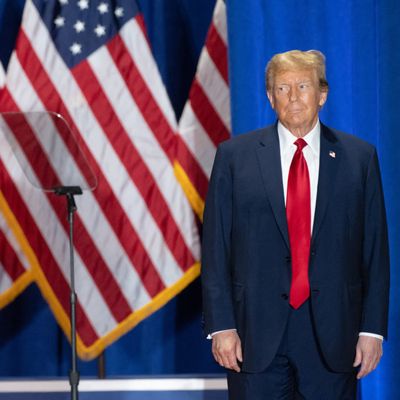
The U.S. Supreme Court ruled on Monday that Colorado cannot bar Donald Trump from appearing on the ballot in the state’s primary election under section three of the 14th Amendment, resolving one of the major legal questions ahead of this fall’s presidential election, when Trump will most likely face off against President Joe Biden again. The decision means Colorado and other states will not be able to disqualify Trump from the ballot over his attempt to overturn the results of the 2020 election. Only Congress has that power, the Court ruled — as many experts had long expected it to.
“Because the Constitution makes Congress, rather than the states, responsible for enforcing section 3 against all federal officeholders and candidates, we reverse [the Colorado ruling],” the Court said in an unsigned decision. (The ruling does not bar states from disqualifying state candidates.)
The Justices were in unanimous agreement that Colorado cannot disqualify Trump from the ballot in this case, though not about why, as NBC News reports:
Although the bottom-line vote was unanimous, there were some divisions on the court, which has a 6-3 conservative majority, as to how the case was resolved. The three liberal justices — Sonia Sotomayor, Elena Kagan and Ketanji Brown Jackson — complained in a jointly written concurring opinion that the court had decided more than it needed to by laying out how section 3 could be enforced by Congress.
Conservative Justice Amy Coney Barrett agreed that the court went further than required, although she did not join the liberal justices’ opinion. The liberal justices said the decision could “insulate” Trump from “future controversy.” The ruling “shuts the door on other potential means of federal enforcement” of section 3, they added.
The ruling also notably did not offer any opinion as to whether or not what transpired on January 6, 2021 qualified as an insurrection.
Elie Honig writes that the whole process was counterproductive at best:
The Supreme Court has now made clear what was already apparent on the face of the Constitution itself: Without some specific enabling act of Congress, it’s not up to the states. This shouldn’t have been some sort of mystery. It’s right there in the 14th Amendment’s plain text: “The Congress shall have the power to enforce, by appropriate legislation, the provisions of this article.” At any point since the 14th Amendment’s ratification in 1868, Congress could have passed a law saying, in essence: We’ll let the states decide, so long as they use reasonably fair procedures. But it’s been 150-plus years now, and Congress has done no such thing. Unless and until that changes, the 14th Amendment will remain a dusty, nonfunctional curiosity.
The constitutional ban on insurrectionists holding office is a perfectly sound — necessary, even — policy concept. And, by any common sense application, Trump violated the clause. But the process issues that ultimately sank the effort to ban Trump from the ballot were apparent all along. The resources, credibility, and political capital that were poured into the 14th Amendment disqualification campaign would’ve been better spent trying to get Congress to do its job, to protect against future insurrectionists retaking office.
Trump quickly celebrated the ruling on Monday, posting on Truth Social that it was “BIG WIN FOR AMERICA!!!”
In December, the Colorado Supreme Court ruled that Donald Trump was ineligible to hold or seek office under section three of the post–Civil War era 14th Amendment of the Constitution, which targeted former members of the Confederacy, barring people from holding any office if they have violated their oaths to the Constitution and “have engaged in insurrection or rebellion against” it.
Trump appealed the ruling and asked the U.S. Supreme Court to take up the matter, and the Court quickly agreed to review the case. It heard arguments on the case on February 8 and ruled less than a month later — which is breakneck speed when it comes to the Supreme Court. Up until now, it had never weighed in on section three of the 14th Amendment.
Colorado was only the first state to try to kick Trump off the ballot. Maine’s Democratic secretary of State also concluded that Trump was ineligible to appear on the ballot there, as did a judge reviewing the matter for the Illinois board of elections.
Many pundits and legal experts had emphasized that the state-level efforts to prevent Trump from running for office again under the 14th Amendment were unlikely to succeed, particularly since the conservative-majority Supreme Court would ultimately get the final word. Analysis of how the February 8 hearing went indicated the same.
This post has been updated.
More politics
- Trump Ambassador Picks: Who’s in His ‘Diplomatic Clown Car’
- What We Learned From the House Ethics Report on Matt Gaetz
- Everyone Biden Has Granted Presidential Pardons and Commutations






























